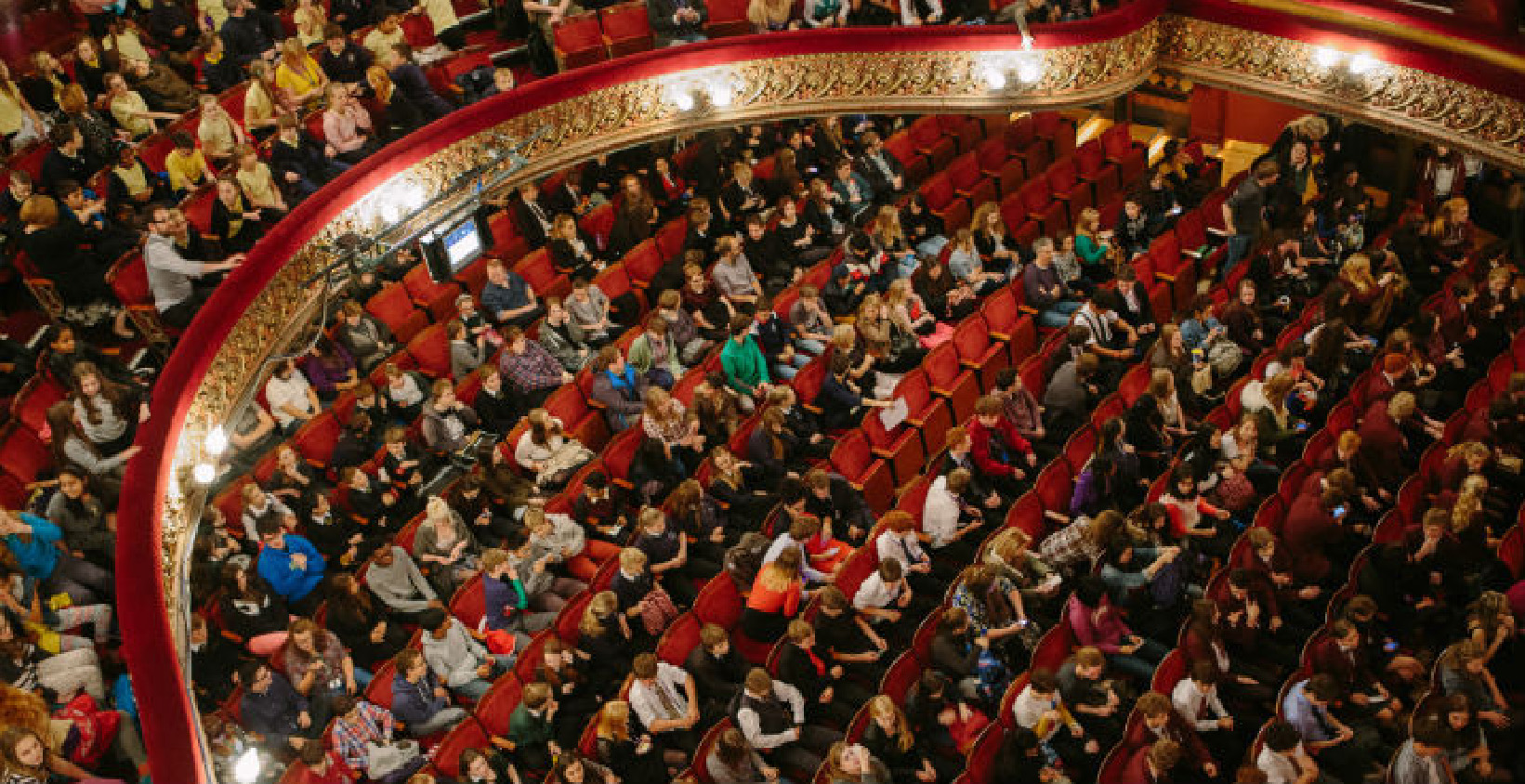Opera companies are engaging with more young people and schools, utilising the varied learning opportunities offered. Susan Elkin extolls the benefits of opera in education.
I once had the privilege of watching Pavilion Opera (www.pavilionopera.com) perform a 90 minute version of Verdi’s Don Carlos in a primary school in West London The children, aged 8 and 9, who had been very thoroughly prepared, sat cross legged on the floor round a rectangle in the school hall. From inside the playing space a cast of professional singers sang and acted. And the children were rapt. It was an education for me as well as for them: opera is most definitely not an elitist art form and you can’t start it too young. After all, in Italy – the birthplace of opera – families flock to their local opera houses and spaces in the same way as they do for football matches.
Most opera companies – including the ones without any Arts Council support such as Glyndebourne and Opera Holland Park – work hard at imaginative education provision alongside their shows these days. The Royal Opera House, for example, has a large very active education department (www.roh.org.uk/learning) based at the Production Park in Thurrock. It works with schools and teachers, young people, adults and the community. That means apprenticeships, schools matinees, specific work with local Thurrock schools and more.
Among the many other things it offers, ROH has a flagship project called Create and Sing Carmen. This is a ten-week project for primary schools available nationally throughout 2017. The idea is to equip teachers with the skills and resources – including films, audio tracks and advice – to create their own class performances of Bizet’s masterpiece. Email createandsing@roh.org.uk for more information.
English National Opera (www.eno.org/discover-opera) based at the Coliseum in St Martin’s Lane, is similarly committed to education through its Baylis Programme. It works with schools across London with particular focus on schools in the boroughs of Brent, Lambeth and Westminster. Some schools take part in one year Opera Squad partnerships. That includes whole school takeover days by ENO with lots of opera-related activities to support curriculum learning as well as bespoke workshops and pop-up performances. Beyond Opera Squad, schools come in to the Coliseum to see the work at close hand, go backstage and meet professionals and ENO runs teacher INSET. There are free tickets for dress rehearsals and subsidised tickets for every show. The education department also works with young people and adults as well as providing higher education opportunities for creative projects and research.
Or here’s a different approach. This term Leeds-based Opera North (education@operanorth.co.uk) has lots of ideas for work based on its current production of Ravel’s L’enfant et les sortilèges. Schools matinées (45 minutes) are available at Leeds Grand Theatre, Newcastle Theatre Royal and Lowry Salford Quays with tickets at £6 each. Teachers can access a free cross-curricular resource pack focusing on the French language, music, drama and art. In addition, schools can book an Introduction to Opera workshop suitable for key stages 2 to 4 and that takes place in the schools which can buy a workshop/matinée package if they wish.
Garsington Opera at Wormsley (www.garsingtonopera.org), now based in a state of the art pavilion on the Getty estate near High Wycombe, has been running an innovative education project this year which culminated in a weekend of performances in July. Silver Birch is a new opera by Roxanna Parnufnik and Jessica Duchen. It featured 180 children, young people and adults from the community working with a core professional cast. And it was very clear – in this moving story, based on a true one, about a family man shell-shocked after service in Iraq – that everyone was learning from everyone else. And that included the non-professionals working in the stage management team and other back stage capacities and the youngsters who were playing in the orchestra alongside seasoned pros.
Opera is probably the most complex art form of all – that’s why it is expensive to stage. That doesn’t mean that it isn’t, can’t be or shouldn’t be made accessible to everyone. Good, well thought out education projects are doing exactly that. Children and young people can and do learn and develop though experience of opera. Moreover, there is no dumbing down involved because children are almost always capable of more than most adults think they are.
From Pavilion Opera Educational Trust website
The Pavilion Opera Educational Trust, now in its 27th year, was founded on the initiative of Geoffrey Simmonds in 1991 and takes complete Pavilion Opera performances into schools where opera is not readily available.
This has included the urban Boroughs of Merton, Harrow, Bromley, Enfield, Islington, Brent, Barnet, Bournemouth, Tower Hamlets, Westminster, Lambeth, Ealing, Lewisham, Camden, Middlesbrough, Hillingdon and Sheffield and the counties of Hertfordshire and Lincolnshire, so far involving 326 performances of 15 operas in 19 Boroughs to more than 48,500 children in 779 participating schools.
The children are taught the story and the history of the opera and its composer before we arrive, and discuss the performance in class afterwards. There are no compromises in these performances, which are sung in the original language, and the children find this less of a problem than some adults.
www.pavilionopera.com/index.php/educational-trust/



